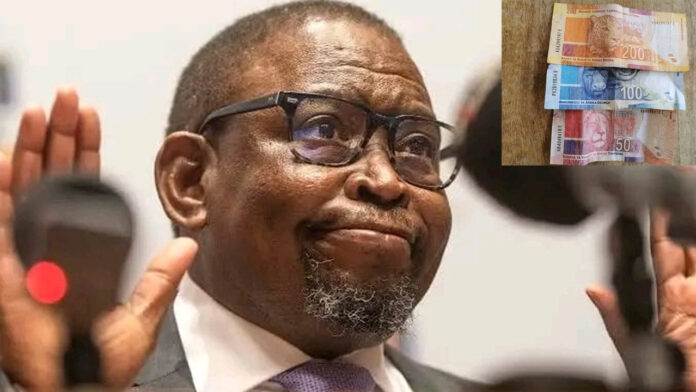The government of South Africa must either increase Value Added Tax (VAT) or lower the COVID-19 Social Relief of Distress (SRD) grant, warned Finance Minister Enoch Godongwana. Both decisions will have significant impact on the nation, particularly for jobless and underprivileged people.
Introduced first in 2020 during the COVID-19 epidemic, the SRD grant aims to assist those without income or job loss. The government has extended it several times even though it was meant to be temporary since many South Africans still find financial difficulty. Comprising roughly R35 billion annually, the grant is now set to run until March 2026. The grant strains the national budget heavily even though it benefits over 8 million people.
The government proposed raising VAT from 15% to 17% to help with this expense. With almost R58 billion brought in from this additional 2%, the SRD grant and other vital services including infrastructure, education, and healthcare would be funded. Rising VAT would, however, also make regular items and services more costly. Many South Africans, particularly those with low incomes, would battle even more to meet basic needs including food and transportation.
These issues led many people, including political parties in the Government of National Unity (GNU), to strongly oppose the plan to increase VAT. The government thus decided to delay the budget speech scheduled for February 2025. The delay indicates that the government still lacks clarity on how to address the issue without compromising the economy or aggravating the daily life for common people.
The remark of Minister Godongwana reveals the difficult circumstances the government finds itself in. Although they will raise living expenses for everyone, they can keep the SRD grant and support other social projects if they raise VAT. Conversely, if they reduce the grant, millions of dependant people will suffer and more poverty and demonstrations may result.
Other remedies have been recommended by some professionals. For instance, they think the government should concentrate on implementing new taxes for the wealthy, more effective tax collecting, or lessening of wasteful expenditure. These choices, though, may take time to show results and are not simple to implement.
The government now has to decide on a tough matter. Should they decide to retain the grant without increasing VAT, they have to figure out other means of income or risk worsening the debt of the nation. Should they choose to reduce the grant, they have to be ready for public and social welfare organizations to criticize them fiercely.
Many South Africans are right now eager to find out what will happen. This choice is significant since it will not only influence the financial situation of the nation but also the life of millions of people who depend on government help to survive. Whatever the government decides, it has to strike a balance between budget control and safeguarding of its most defenseless people.

